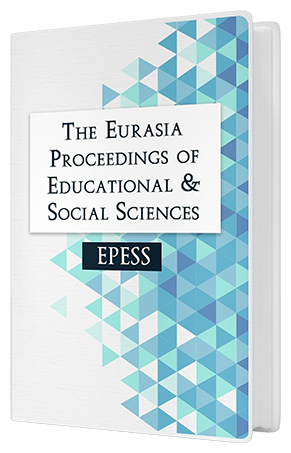EFL STUDENTS’ REFLECTIONS ON EXPLICIT AND IMPLICIT WRITTEN CORRECTIVE FEEDBACK
Keywords:
L2 writing, EFL learners, explicit feedback, implicit feedbackAbstract
Written corrective feedback given by the teacher on students’ essays plays a significant role in the development of language and writing skills of second language (L2) learners. Whether explicit (direct) feedback or implicit (indirect) feedback should be given to students’ errors in essays, and which of these is more beneficial to learners has been a concern of L2 writing researchers for some time. However, the issue of learners’ preferences on the types of written corrective feedback has been overlooked. This paper aims to investigate Turkish speaking English as a Foreign Language (EFL) students’ ideas about explicit and implicit written corrective feedback. The authors attempt to answer the following questions: 1- What are Turkish secondary school students’ attitudes towards writing in English as a foreign language?2- What are their preferences in relation to two different types of written corrective feedback (explicit and implicit)? In order to shed light on the students’ opinions and preferences in terms of written corrective feedback, a study was conducted at a Turkish state secondary school in Istanbul. Seventy (70) seventh-grade female students, whose ages were around 12, participated in this study. Half of the students received explicit feedback on their essays, while the other half received implicit feedback. Students’ opinions were collected via a questionnaire comprised of nine Likert-type items and one open-ended question during the fall semester of 2016-2017 academic year. The closed items were analyzed by conducting descriptive statistics, while qualitative data analysis was used for the answers to the open-ended item. Results reveal that students in both groups preferred one type of written corrective feedback more than the other type. Various factors that might play a role in this result as well as suggestions for EFL teachers will be discussed.Downloads
Published
Issue
Section
License
Copyright (c) 2017 The Eurasia Proceedings of Educational and Social Sciences

This work is licensed under a Creative Commons Attribution-NonCommercial-ShareAlike 4.0 International License.
The articles may be used for research, teaching, and private study purposes. Any substantial or systematic reproduction, redistribution, reselling, loan, sub-licensing, systematic supply, or distribution in any form to anyone is expressly forbidden. Authors alone are responsible for the contents of their articles. The journal owns the copyright of the articles. The publisher shall not be liable for any loss, actions, claims, proceedings, demand, or costs or damages whatsoever or howsoever caused arising directly or indirectly in connection with or arising out of the use of the research material. All authors are requested to disclose any actual or potential conflict of interest including any financial, personal or other relationships with other people or organizations regarding the submitted work.




